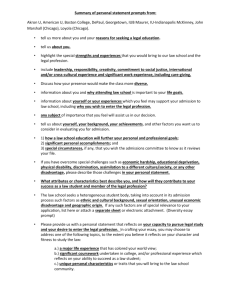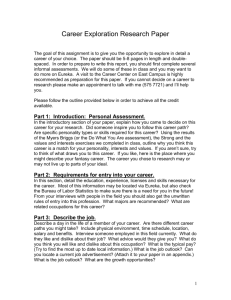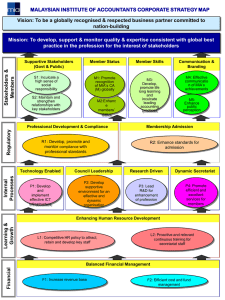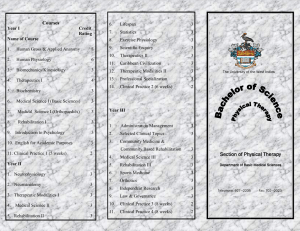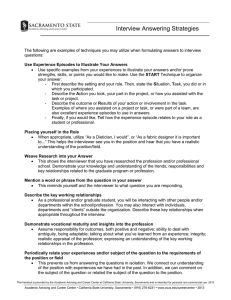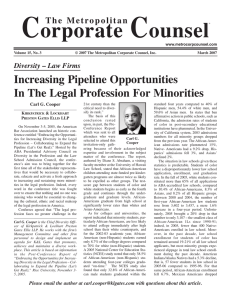A personal statement is a document that details your interest... experiences personal to your life. It is typically required for...
advertisement
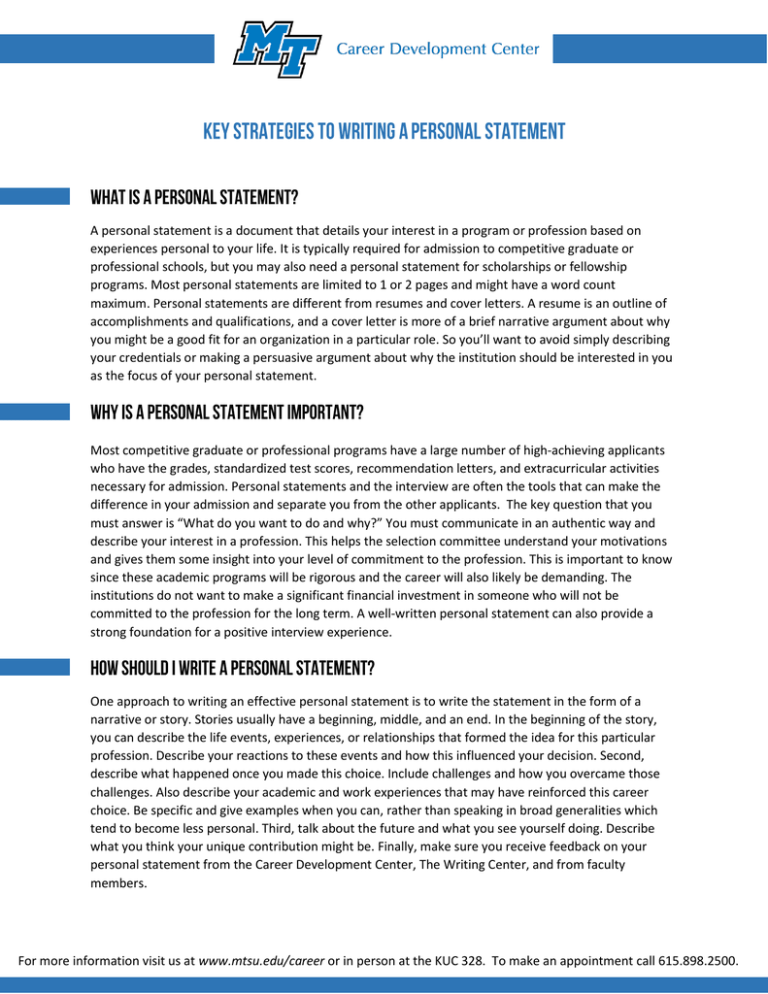
A personal statement is a document that details your interest in a program or profession based on experiences personal to your life. It is typically required for admission to competitive graduate or professional schools, but you may also need a personal statement for scholarships or fellowship programs. Most personal statements are limited to 1 or 2 pages and might have a word count maximum. Personal statements are different from resumes and cover letters. A resume is an outline of accomplishments and qualifications, and a cover letter is more of a brief narrative argument about why you might be a good fit for an organization in a particular role. So you’ll want to avoid simply describing your credentials or making a persuasive argument about why the institution should be interested in you as the focus of your personal statement. Most competitive graduate or professional programs have a large number of high-achieving applicants who have the grades, standardized test scores, recommendation letters, and extracurricular activities necessary for admission. Personal statements and the interview are often the tools that can make the difference in your admission and separate you from the other applicants. The key question that you must answer is “What do you want to do and why?” You must communicate in an authentic way and describe your interest in a profession. This helps the selection committee understand your motivations and gives them some insight into your level of commitment to the profession. This is important to know since these academic programs will be rigorous and the career will also likely be demanding. The institutions do not want to make a significant financial investment in someone who will not be committed to the profession for the long term. A well-written personal statement can also provide a strong foundation for a positive interview experience. One approach to writing an effective personal statement is to write the statement in the form of a narrative or story. Stories usually have a beginning, middle, and an end. In the beginning of the story, you can describe the life events, experiences, or relationships that formed the idea for this particular profession. Describe your reactions to these events and how this influenced your decision. Second, describe what happened once you made this choice. Include challenges and how you overcame those challenges. Also describe your academic and work experiences that may have reinforced this career choice. Be specific and give examples when you can, rather than speaking in broad generalities which tend to become less personal. Third, talk about the future and what you see yourself doing. Describe what you think your unique contribution might be. Finally, make sure you receive feedback on your personal statement from the Career Development Center, The Writing Center, and from faculty members. For more information visit us at www.mtsu.edu/career or in person at the KUC 328. To make an appointment call 615.898.2500.

